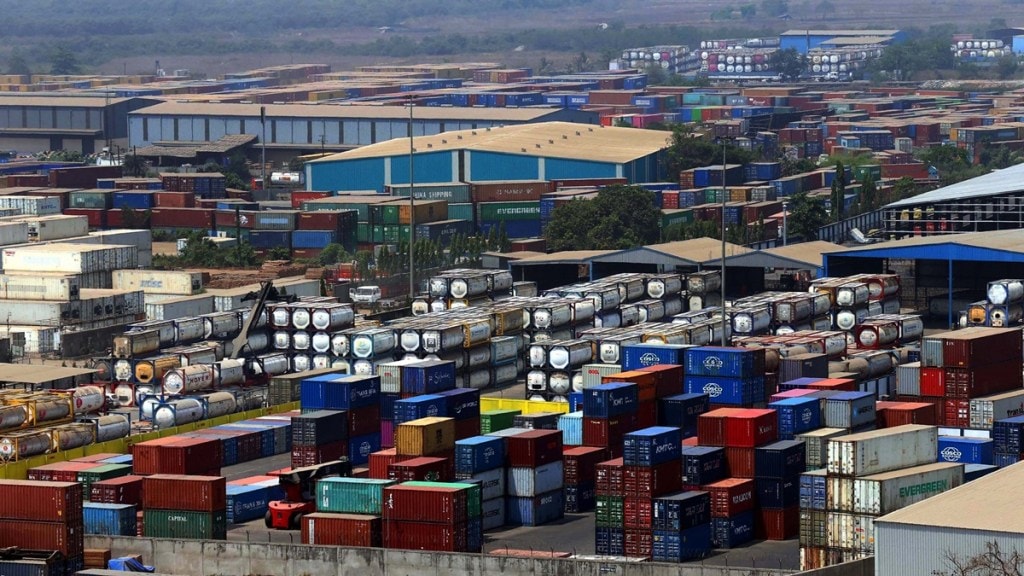The European Union’s Carbon Border Adjustment Mechanism (CBAM) has started hurting India’s exports of steel and aluminium even before the actual collection of the tax under it has begun, according to a report by Global Trade Research Initiative (GTRI).
CBAM’s Early Impact on Indian Exports
The tax under CBAM will be collected from January 1, 2026, while the reporting requirements on carbon emissions at the production stage on steel and aluminium began from October 1, 2023.
Because of the complexities involved in reporting, several companies have opted out of exporting to the EU, leading to a 24.4% drop in India’s steel and aluminum exports — to $5.82 billion in FY25 from $7.71 billion in FY24, the report said.
Steel was hit hardest, with iron and steel exports plunging 35.1% to $3.05 billion, while articles of iron and steel fell 6.8% and aluminum exports declined 9.8%.
Carbon Pricing Gap Widens Burden
The latest announcement by the 27-nation grouping, in its new strategic agenda for India, allowing Indian exporters to deduct the price paid under the upcoming Carbon Credit Trading Scheme (CCTS) from CBAM liabilities is no extra favour. This has been presented as a concession to India but it is not a concession — Article 9 of CBAM Regulation already allows such deductions for all countries, Ajay Srivastava, founder of GTRI, said.
CBAM is the tax levied on excess carbon emitted during the production of select products like iron and steel, aluminium, cement, electricity, hydrogen and fertilisers. The EU has prescribed a threshold of carbon emission on each product, beyond which, this tax will be imposed.
In September, the EU announced exemption to companies importing less than 50 tonnes of CBAM goods. However, most commercial shipments have far greater volumes, making this exemption practically meaningless.
Indian exporters will be unable to utilise this small concession of carbon price adjustment anytime soon. The CCTS, India’s first national carbon market, was legally notified under the amended Energy Conservation Act, 2022, but remains at a preparatory stage.
Even when fully operational, the Indian carbon price is expected to remain below $10 per tonne of carbon dioxide, far below the EU Emissions Trading System (ETS) price of around €65/$71 per tonne. This means, Indian exporters would still need to pay the difference — roughly $61/tCO₂ — as CBAM liability, leading to a significant additional cost burden.
Indian exporters already face safeguard measures and anti-dumping duties in the EU. Safeguard tariff rate quotas (TRQs) cap duty-free imports for 26 steel product categories, and imports above quota attract a 25% tariff. For stainless steel cold-rolled flat products from India, provisional anti-dumping duties range between 13.6% and 34.6%. CBAM levies will be over and above these duties, further eroding the competitiveness of Indian producers.
“India should also negotiate with Brussels for transition flexibilities — similar to what the US reportedly secured — such as longer phase-in periods, partial waivers, or recognition of domestic carbon payments,” Srivastava added.
Without such measures, CBAM can hurt trade with the EU and undermine the ongoing India-EU FTA negotiations, he said.
